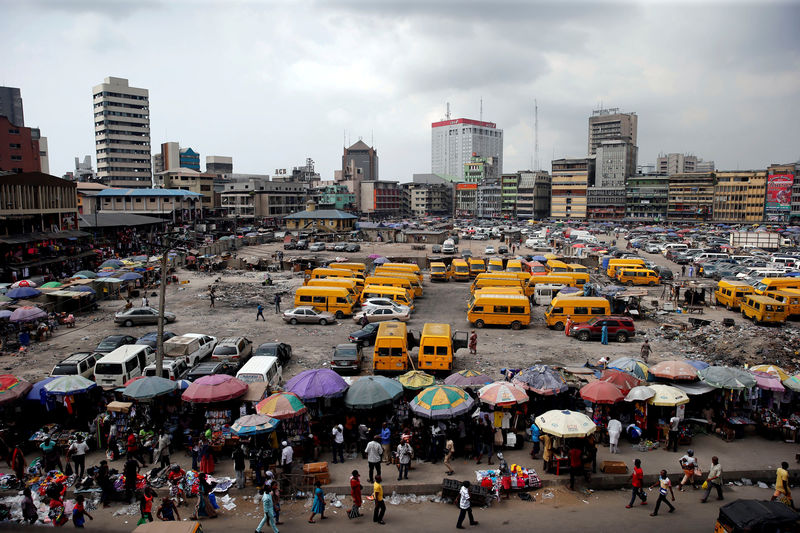U.S. stocks lower as investors rotate out of tech ahead of Jackson Hole
By Hugh Bronstein
LAGOS, Jan 31 (Reuters) - More than 1,000 motorcycle taxi
drivers marched to the gates of the Lagos state legislature on
Friday to protest against a measure that will bar them from much
of Nigeria's traffic-choked commercial capital.
The marchers, many of whom wore or carried motorcycle
helmets, oppose a ban on commercial motorcycles known locally as
okadas and three-wheeled motorised rickshaws called kekes from
the city's streets.
The state government said the decision, which goes into
force on Saturday, is necessary for safety and security.
The protesters denied they flout traffic rules and said they
are an essential part of the economy in the teeming city of 20
million people that has huge traffic jams.
Many of them work for ride-hailing apps Gokada and Max.ng,
which have called the ban an attack on poor people as many of
the riders have few other employment options.
"If they ban the bikes I won't be able to pay my rent or my
children's' school fees. I'm a graduate. I went to school but
there are no good jobs in the country so I need to do this one
to help myself and my family," Chigozie Bright, a 33-year-old
driver who started with ride service App Gokada last year.
Some of the marchers carried signs saying "Regulate Us - Not
Kill Us" and shouted the slogan as they went, but there were no
signs of violence.
Protesters said they would not disobey the ban by offering
rides on Saturday, and hoped that customers would lobby for the
ban to be lifted once they were left without rides.
Obiorah Obiorah, who watched the march from a car, said he
relied on okadas and kekes, and opposed the government's move.
"To put a blanket ban is not proper because the roads are
bad, totally bad," he said.
The state government said in a tweet that the okadas and
kekes were dangerous and the drivers needed to learn "trades we
used to be proud of" such as bricklaying, printing or tailoring.
(Editing by Libby George and Timothy Heritage)
